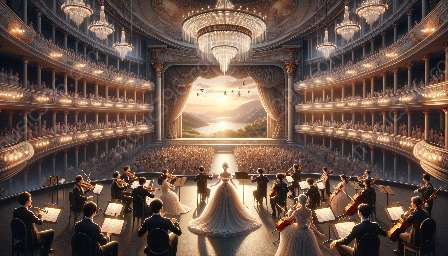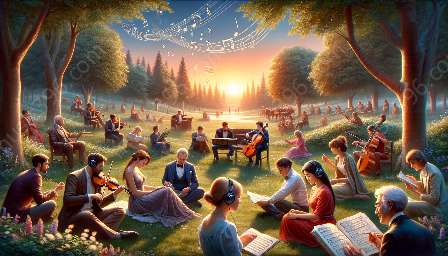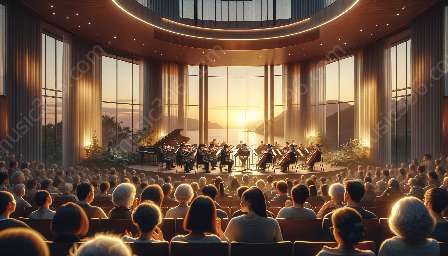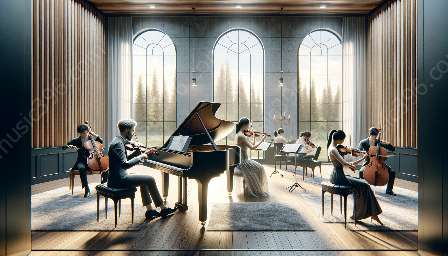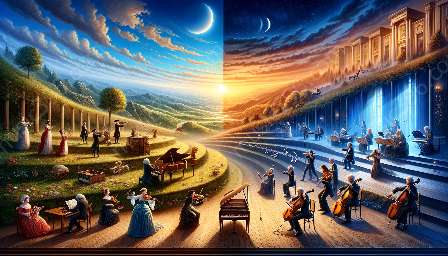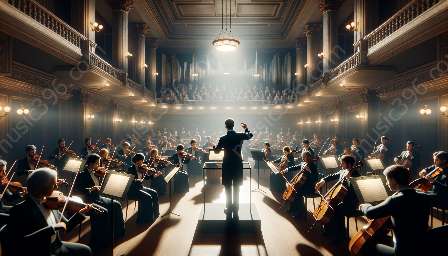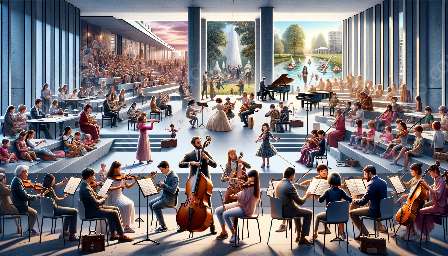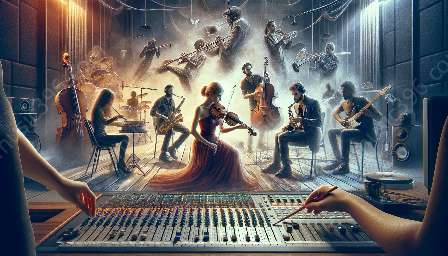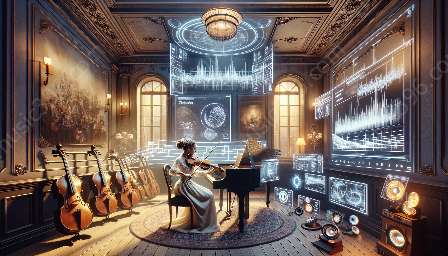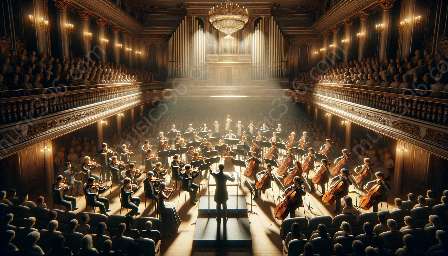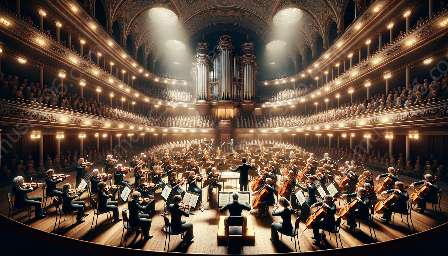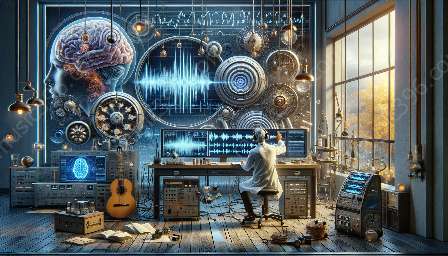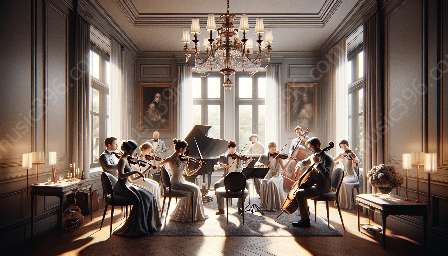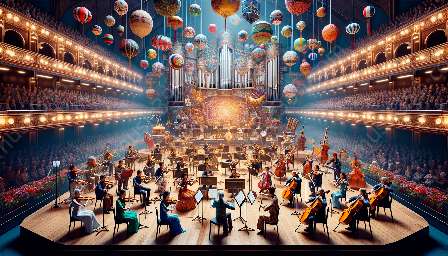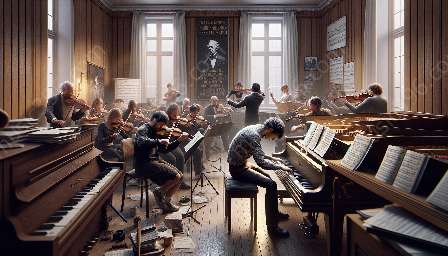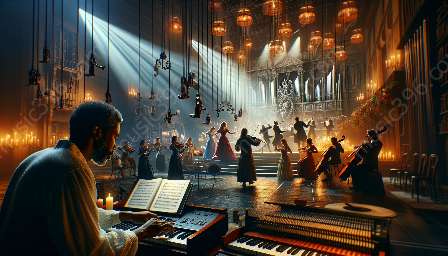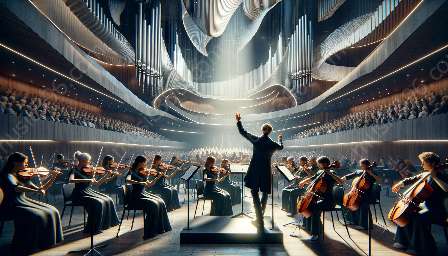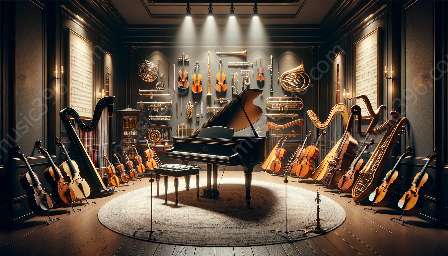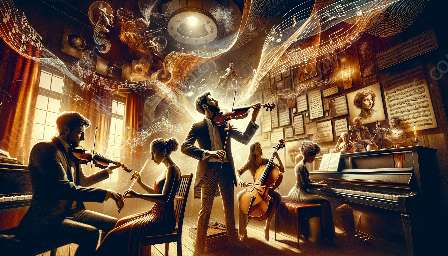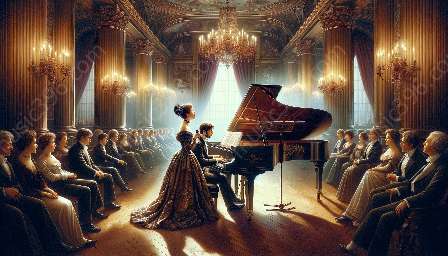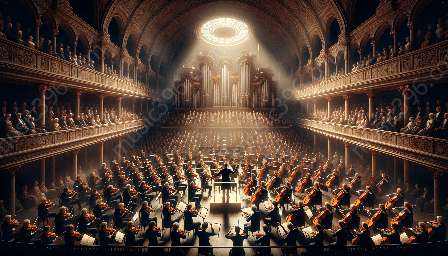Classical music, with its rich history and traditional performance techniques, has not been immune to the influence of modern technology. This impact extends beyond performance and production, shaping the very skills and techniques that define the classical music experience. Let's dive into the ways in which technology has transformed classical music, from enhancing performances to revolutionizing production methods.
The Evolution of Performance
Technology has brought about significant changes in how classical music is performed. Digital recording and playback technologies have allowed musicians to analyze and refine their performances to a level of detail previously unattainable. In addition, digital sheet music and notation software have streamlined the process of composing, arranging, and distributing musical scores, empowering composers and performers alike.
One of the most prominent advancements in classical music performance is the integration of electronic instruments with traditional orchestras. Electronic keyboards, synthesizers, and digital sound processing have expanded the sonic palette available to composers and performers, enabling the creation of entirely new musical textures and timbres.
Impact on Skills and Techniques
Technology has influenced the skills and techniques required in classical music. Musicians are now expected to be proficient in utilizing digital tools for recording, editing, and mixing music. This shift has created a demand for a new breed of classical musicians who are not only masters of their instruments but also adept in navigating complex software and hardware systems.
Furthermore, the rise of online platforms and social media has transformed the marketing and promotion of classical music. Musicians are now required to develop skills in engaging with audiences through digital platforms, creating content for online distribution, and leveraging social media to build a fan base.
Revolutionizing Production Methods
Technology has revolutionized the production of classical music, offering new avenues for recording, editing, and distributing compositions. High-quality audio recording equipment, digital audio workstations, and virtual instruments have made it possible for musicians to produce professional-grade recordings without the need for expensive studio time or large ensembles.
Virtual orchestras and sample libraries have expanded the artistic possibilities for composers, allowing them to produce large-scale compositions with a fraction of the resources required in the past. This has democratized music production, making it more accessible to a wider range of composers and performers.
Technology and Classical Music Education
Technology has also transformed classical music education. Online platforms offer access to instructional videos, virtual masterclasses, and interactive learning materials, allowing students to learn from world-renowned musicians and educators regardless of their geographical location.
Furthermore, music notation software and digital learning tools have enabled students to engage with complex musical scores and compositions in a more interactive and dynamic manner. This has enhanced the learning experience, making classical music education more engaging and accessible to a new generation of students.
Conclusion
The impact of technology on classical music is undeniable, touching every aspect of performance, production, skills, and education. As technology continues to advance, it will be fascinating to observe how classical music evolves further, integrating new tools and capabilities into its timeless traditions.

